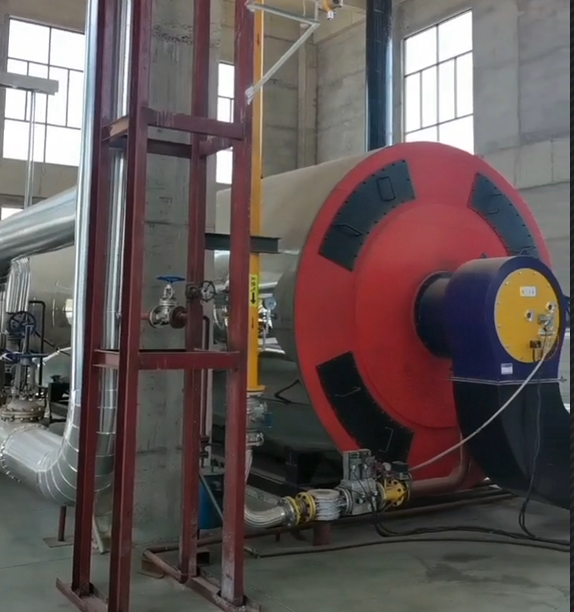
Jan . 17, 2025 03:44 Back to list
commercial steam boilers for sale
Steam boilers, essential components in many industrial applications, vary widely in design and functionality, each suited for specific tasks and efficiency levels. Understanding these variations not only enhances operational efficiency but also ensures safety and compliance in industrial settings. This comprehensive guide delves into the different types of steam boilers, their applications, and the nuances that make each type unique.
Modular Boilers In industries where demand for steam fluctuates, modular boilers offer unmatched flexibility. They consist of several small boilers that operate simultaneously and can be turned on or off based on current demand. This scalability makes them ideal for facilities that experience varying steam requirements. Modular boilers optimize efficiency and reduce energy wastage by matching steam production with demand accurately. Vertical Boilers Suited for small spaces, vertical boilers feature a cylindrical shell with a vertical axis. They are typically used in small-scale industries with limited floor space, such as laundries and dry-cleaning facilities. Although they offer a smaller steam capacity, their compact design allows them to fit into tight installations where larger boilers cannot. Biomass Boilers With an increasing focus on sustainability, biomass boilers are gaining popularity in industries committed to environmental conservation. These boilers use organic materials such as wood pellets, agricultural residues, and waste as fuel, making them a renewable energy source. Biomass boilers are commonly used in sectors like agriculture, forestry, and food processing, providing an eco-friendly alternative to traditional fossil fuel boilers. When selecting a steam boiler for industrial application, consider factors such as steam pressure requirements, fuel type availability, efficiency, and environmental impact. Understanding the distinct characteristics of each boiler type ensures that the chosen system aligns with the operational goals and regulatory requirements of the industry. Partnering with reputable manufacturers and consulting with industry experts can provide additional insights and assist in making informed decisions. In conclusion, the variety in steam boilers allows industries to find solutions tailored to their specific needs. By evaluating the unique benefits and limitations of each type, businesses can optimize their steam usage, enhance productivity, and contribute to environmental sustainability.


Modular Boilers In industries where demand for steam fluctuates, modular boilers offer unmatched flexibility. They consist of several small boilers that operate simultaneously and can be turned on or off based on current demand. This scalability makes them ideal for facilities that experience varying steam requirements. Modular boilers optimize efficiency and reduce energy wastage by matching steam production with demand accurately. Vertical Boilers Suited for small spaces, vertical boilers feature a cylindrical shell with a vertical axis. They are typically used in small-scale industries with limited floor space, such as laundries and dry-cleaning facilities. Although they offer a smaller steam capacity, their compact design allows them to fit into tight installations where larger boilers cannot. Biomass Boilers With an increasing focus on sustainability, biomass boilers are gaining popularity in industries committed to environmental conservation. These boilers use organic materials such as wood pellets, agricultural residues, and waste as fuel, making them a renewable energy source. Biomass boilers are commonly used in sectors like agriculture, forestry, and food processing, providing an eco-friendly alternative to traditional fossil fuel boilers. When selecting a steam boiler for industrial application, consider factors such as steam pressure requirements, fuel type availability, efficiency, and environmental impact. Understanding the distinct characteristics of each boiler type ensures that the chosen system aligns with the operational goals and regulatory requirements of the industry. Partnering with reputable manufacturers and consulting with industry experts can provide additional insights and assist in making informed decisions. In conclusion, the variety in steam boilers allows industries to find solutions tailored to their specific needs. By evaluating the unique benefits and limitations of each type, businesses can optimize their steam usage, enhance productivity, and contribute to environmental sustainability.
Share
Latest News
-
How to Maintain a Steam Boiler Expert Tips for Efficiency & Longevity
NewsApr.29,2025
-
Professional Steam Boiler Service AB Expert Maintenance & Repair
NewsApr.29,2025
-
Hot Water Steam Boilers Efficient Heating Solutions & Expert Tips
NewsApr.29,2025
-
Hot Water Boiler Capacity Calculation Guide Efficient Design Tips
NewsApr.28,2025
-
How to Drain a Steam Boiler Step-by-Step Safety Guide
NewsApr.28,2025
-
How to Install a Hot Water Boiler Optimal Pressure & Efficiency Guide
NewsApr.28,2025
Related PRODUCTS
Copyright © 2025 HEBEI HONGZE BOILER MANUFACTURING CO., LTD. All Rights Reserved. Sitemap | Privacy Policy






















